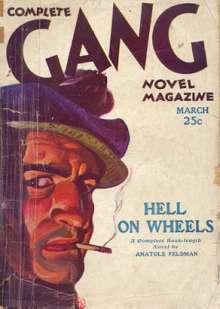 Ban veils in public, says Asian bishop
Ban veils in public, says Asian bishopMuslim women should be banned from wearing the veil, to improve security and cohesion in Britain, the Church of England's only Asian bishop has said.
The Rt Rev Michael Nazir-Ali, Bishop of Rochester, urged the Government to introduce legislation that would force Muslims to remove the veil when they are at work or travelling.
In an outspoken attack on the custom of Muslim women to cover their faces, the Pakistani-born bishop said that the Islamic community needed to make greater efforts to integrate into British society.
"It is fine if they want to wear the veil in private, but there are occasions in public life when it is inappropriate for them to wear it," he said.
His call for new laws to control the wearing of the veil in public comes only days after it was revealed that Mustaf Jama, the Somali suspected of murdering WPc Sharon Beshenivsky, is thought to have fled the country by dressing in the niqab, which covers the whole face except the eyes.
"Given that we are facing an unprecedented security situation, legislation needs to be introduced that allows officials to remove the veil," the bishop told The Sunday Telegraph.
His comments will reignite the row which began in October after Jack Straw revealed that he asked Muslim women to remove the niqab before meetings in his Blackburn constituency.
Bishop Nazir-Ali, whose father converted from Islam to Catholicism, said that the legislation should not just cover airports, but should extend to all areas of travel where an identity needs to be established, such as tube and train stations and ports. He said that the possible failure of airline staff to challenge Jama was symptomatic of people being "too worried about offending Muslims".
Laws should also be given to employers and boards of trustees to demand that the veil is not worn at work, he said.
Aishah Azmi, a Muslim teaching assistant, took her school to an employment tribunal after it suspended her for refusing to remove her veil. She was awarded £1,100 for "injury to her feelings", but her claim of religious discrimination was rejected.
The bishop argued, however, that the introduction of new laws would not improve cohesion unless the Muslim community steps up its efforts to integrate.

 A SUSPECT in the killing of a policewoman fled Britain by disguising himself as a Muslim woman wearing a veil, The Times said today. According to the newspaper which cited unidentified police sources, Mustaf Jamma, a Somali man, assumed the identity of his sister and using her passport and wearing a veil got through security at London's Heathrow Airport.
A SUSPECT in the killing of a policewoman fled Britain by disguising himself as a Muslim woman wearing a veil, The Times said today. According to the newspaper which cited unidentified police sources, Mustaf Jamma, a Somali man, assumed the identity of his sister and using her passport and wearing a veil got through security at London's Heathrow Airport. Police hunting the killers of a policewoman in northern England on Monday arrested two men in the south Wales town of Newport. Gwent Police said they arrested
Police hunting the killers of a policewoman in northern England on Monday arrested two men in the south Wales town of Newport. Gwent Police said they arrested  POLICE hunting a man suspected of killing the police officer
POLICE hunting a man suspected of killing the police officer  Tony Blair and Peter Hain, the Northern Ireland Secretary, faced a fierce and emotional backlash from MPs yesterday over legislation to allow fugitive terrorists to return without having to serve prison sentences. The Bill will allow those wanted by police for some of the most heinous atrocities during the IRA's 30-year campaign to have their slate effectively wiped clean.
Tony Blair and Peter Hain, the Northern Ireland Secretary, faced a fierce and emotional backlash from MPs yesterday over legislation to allow fugitive terrorists to return without having to serve prison sentences. The Bill will allow those wanted by police for some of the most heinous atrocities during the IRA's 30-year campaign to have their slate effectively wiped clean. A gang of men shot and killed an unarmed policewoman and wounded another, and police arrested six people in connection with the crime Saturday, officials said. The two women were shot when they tried to tackle three men who had robbed a travel agency in the northern city of Bradford, police said. Constable
A gang of men shot and killed an unarmed policewoman and wounded another, and police arrested six people in connection with the crime Saturday, officials said. The two women were shot when they tried to tackle three men who had robbed a travel agency in the northern city of Bradford, police said. Constable